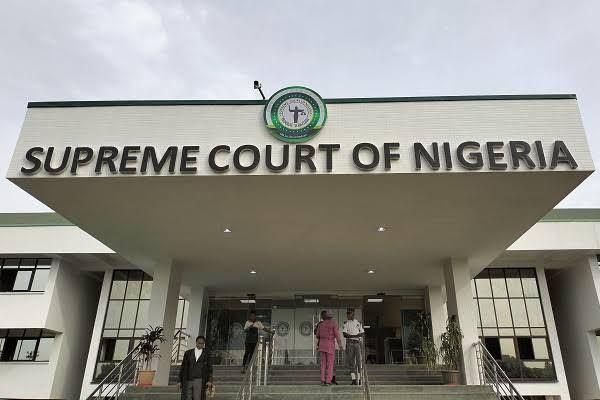Local government autonomy has come to the fore of discussions across Nigeria, following the Supreme Court ruling of July 11th, 2024, which grants full autonomy to all the 774 local governments of Nigeria, especially in areas of finance. The apex court ruled that federal allocations must go directly to local government accounts, rather than going through the joint state and local government accounts as it had been in the past which leaves governments at local levels at the mercy of their state governments.
The ruling, if enforced, will ensure the distribution of power and resources across different levels of government. However, this may pose a lot of challenges, especially given that local government administrators depend on their state governors for political survival.
On the 5th of August, 2024, it was reported that the 33 council chairmen in Oyo state, as a show of solidarity to Governor Seyi Makinde, pulled out of the Association of Local Governments of Nigeria (ALGON). This eyesore allegiance is not restricted to Oyo state alone, the majority of local government administrations across the country have been reduced to nothing by the state governments. This is evident in the appointment of caretaker committees by state governments instead of substantive administrators duly elected by the citizens to run the affairs of the grassroot governments.
In enforcing local government autonomy, there is a need for constitutional review where sections on local government autonomy are stated unambiguously. State assemblies should also pass unambiguous laws to ensure that state governments do not prevail over the activities of local governments. There should also be stiff penalties for disobedience to court rulings as we have witnessed situations where governments disobey standing court orders. This is to ensure that constitutional provisions are strictly adhered to.
There is the need for local governments across the country to strengthen their institutional capacities to accommodate the increase in responsibilities. Areas of financial management, transparency in budgetary allocations and spending, including capacity training for local government officials should be looked into, in order to ensure smooth running of local governments. Association of Local Governments of Nigeria (ALGON) has partnered the Economic and Financial Crimes Commission (EFCC) to train its members on financial spending, procurement, following due process, transparency and accountability. This is a welcome development as it will further strengthen their ability to handle the job at hand.
There should be checks and balances in the activities of the local government. This can be achieved by ensuring councilors elected into local government councils are trained on legislative procedures. Checks can also be in the form of federal oversight, where federal agencies like the Federal Ministry of Justice and the Federal Accounts Allocation Committee (FAAC), keep track of the level of compliance with local government autonomy. Any violations, whether by state or even local governments, to legal provisions should be taken up in courts or by withholding some privileges until compliance.
Systems of public oversight should be put in place. Citizens should be strengthened to hold local governments accountable by monitoring how funds are disbursed and used, and by assessing the level of development. Citizens can also take roles in oversight committees to oversee local projects. Community chiefs and community associations should be fully invested in the activities of local governments.
The practice of appointing Caretaker Committee in local government should be abolished, allowing the people to elect those who will represent them at the grassroot level of government. This will also put a stop to governors appointing their lackeys to local government administration.
State electoral commissions should be scrapped while the Independent National Electoral Commission (INEC), takes charge of conducting local government elections across the 36 states, including the Federal Capital Territory. This will strip the state governors the opportunity to prevail on elections through state electoral bodies.
With the enforcement of local government autonomy, citizens expect that governments at the grassroot level will be able to meet some expectations.
Since local governments now have direct access to and control over their finances, there should be significant improvements in the provision of basic amenities like education, healthcare, and basic infrastructure. Autonomy should also lead to an improved environment for local businesses, creation of jobs at the local level and boosting of local economies. This will allow people at the grassroots enjoy the dividend of government, as the purpose of local governments is to bring government closer to the people.
Local government, being the closest level of government to the people, should give room for civic engagement. Citizens can be engaged in different ways like consistent town hall meetings and engaging citizens in decision making processes through public hearing. Strong sense of belonging should be created in the minds of the citizens.
It is expected that there will be increased transparency and accountability in government. Citizens should be able to hold their local administrators and representatives accountable regarding how their local government is being run, especially the use of public funds. There should be no room for shady activities in the dealings of local governments by making financial records and budgetary allocations available for public scrutiny.
Autonomy of local governments should lead to governance that is more responsive to the people. It is expected that local authorities will size their policies and programmes to suit the specific needs of their communities. This can be achieved through citizens’ engagement and feedback.
Local government should be the most accessible level of government to the citizens and it is expected to be a government that satisfies the yearnings of the people.

Bashir Turawa
Bashir Turawa is writer, policy researcher and social commentator with interest in government policies across Africa and how they affect the citizens.

